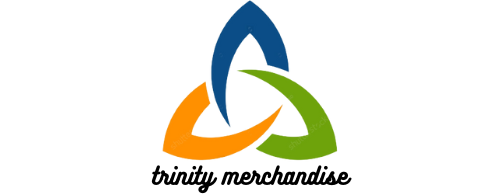
Table of Contents
Introduction to 10 best books that will boost your mindset
In the pursuit of personal growth and self-improvement, books have long served as invaluable guides, offering wisdom, inspiration, and practical strategies for cultivating a mindset primed for success and fulfillment. From exploring the power of resilience and the importance of living in the present moment to uncovering the keys to emotional intelligence and the transformative nature of vulnerability, the following collection of books represents a treasure trove of insights and perspectives from some of the most revered voices in the field of mindset and personal development.
Each of these books delves deep into the intricacies of the human psyche, presenting profound concepts and actionable principles aimed at reshaping perspectives, overcoming obstacles, and unlocking one’s full potential. Whether you’re seeking to break free from self-limiting beliefs, build resilience in the face of adversity, or foster deeper connections with others, this curated selection offers a diverse array of tools and teachings to guide you on your journey toward personal transformation.
Join us as we embark on a journey through the pages of these transformative works, where the wisdom of scholars, psychologists, and thought leaders converge to illuminate the path to a richer, more fulfilling mindset. From timeless classics to contemporary masterpieces, each book invites you to explore new ways of thinking, being, and relating to the world around you, empowering you to embrace change, cultivate resilience, and lead a life of purpose and meaning.
1. Mindsight: The New Science of Personal Transformation” by Daniel J. Siegel:
Daniel Siegel introduces the concept of mindsight, which combines mindfulness and insight to promote self-awareness, empathy, and resilience. He explains how mindsight allows individuals to perceive their own thoughts and feelings more clearly, understand the perspectives of others, and regulate their emotions effectively. Siegel shares case studies and exercises to help readers cultivate mindsight and improve their mental and emotional well-being.
2. The Power of Now: A Guide to Spiritual Enlightenment” by Eckhart Tolle:
Eckhart Tolle emphasizes the importance of living in the present moment as a pathway to inner peace and spiritual awakening. He discusses how the egoic mind creates suffering through attachment to the past and worry about the future, and he offers practical techniques for cultivating mindfulness and presence. Tolle encourages readers to observe their thoughts without judgment, detach from identification with the ego, and experience the deeper reality of being.
3. Man’s Search for Meaning” by Viktor E. Frankl:
Viktor Frankl shares his experiences as a Holocaust survivor and psychiatrist, reflecting on the search for meaning in the face of suffering. He argues that even in the most challenging circumstances, individuals can find purpose and fulfillment by choosing their attitudes and responses to adversity. Frankl introduces logotherapy, a therapeutic approach based on the belief that the primary motivation of human beings is the search for meaning, and he explores how finding meaning can help individuals transcend suffering and live with dignity and resilience.
4. The 7 Habits of Highly Effective People: Powerful Lessons in Personal Change” by Stephen R. Covey:
Stephen Covey outlines seven habits that can help individuals become more effective in their personal and professional lives. These habits include being proactive, beginning with the end in mind, putting first things first, thinking win-win, seeking first to understand, then to be understood, synergizing, and sharpening the saw. Covey emphasizes principles of integrity, empathy, and continuous improvement, encouraging readers to align their actions with their values and focus on what is most important.
5. Atomic Habits: An Easy & Proven Way to Build Good Habits & Break Bad Ones” by James Clear:
James Clear offers practical strategies for building positive habits and breaking negative ones. He emphasizes the power of small, incremental changes and the importance of habit formation in achieving long-term goals. Clear introduces the four laws of behavior change—make it obvious, make it attractive, make it easy, and make it satisfying—and provides actionable tips for applying these principles to create lasting habits.
6. Daring Greatly: How the Courage to Be Vulnerable Transforms the Way We Live, Love, Parent, and Lead” by Brené Brown:
Brené Brown explores the concept of vulnerability and its role in building meaningful connections, fostering creativity, and living wholeheartedly. She argues that vulnerability is not weakness but rather the foundation of courage and authenticity. Brown shares research findings and personal anecdotes to illustrate how embracing vulnerability can lead to greater resilience, empathy, and innovation in relationships and organizations.
7. The Four Agreements: A Practical Guide to Personal Freedom” by Don Miguel Ruiz:
Don Miguel Ruiz presents four agreements as a pathway to personal freedom and happiness. These agreements are: be impeccable with your word, don’t take anything personally, don’t make assumptions, and always do your best. Ruiz explores how these agreements can help individuals break free from self-limiting beliefs and toxic patterns of behavior, leading to greater self-awareness, integrity, and fulfillment.
8. The Subtle Art of Not Giving a F*ck: A Counterintuitive Approach to Living a Good Life” by Mark Manson:
Mark Manson challenges conventional self-help wisdom by advocating for embracing discomfort, accepting limitations, and focusing on what truly matters. He argues that life is inherently difficult and that happiness comes not from avoiding problems but from choosing which problems to care about. Manson encourages readers to prioritize their values, set boundaries, and take responsibility for their choices, leading to a more meaningful and fulfilling life.
9. Emotional Intelligence: Why It Can Matter More Than IQ” by Daniel Goleman:
Daniel Goleman explores the importance of emotional intelligence (EQ) in personal and professional success. He defines EQ as the ability to recognize, understand, and manage emotions in oneself and others, and he argues that it is a better predictor of life outcomes than traditional measures of intelligence. Goleman discusses the five components of EQ—self-awareness, self-regulation, motivation, empathy, and social skills—and provides practical strategies for developing and enhancing these skills.
10. Mindset: The New Psychology of Success” by Carol S. Dweck:
Carol Dweck introduces the concept of fixed and growth mindsets. Individuals with a fixed mindset believe that their abilities and intelligence are innate and unchangeable, leading them to avoid challenges and feel threatened by failure. In contrast, those with a growth mindset believe that their abilities can be developed through effort and perseverance, leading them to embrace challenges and learn from setbacks. Dweck explores how adopting a growth mindset can lead to greater resilience, motivation, and success in various aspects of life.
These summaries offer insights into each book’s key concepts and themes, providing a comprehensive overview of their contributions to personal growth and mindset development. You can read these books for free by joining the amazon audible community. Click on the link below to get started! You can also check out the 10 best self help books




